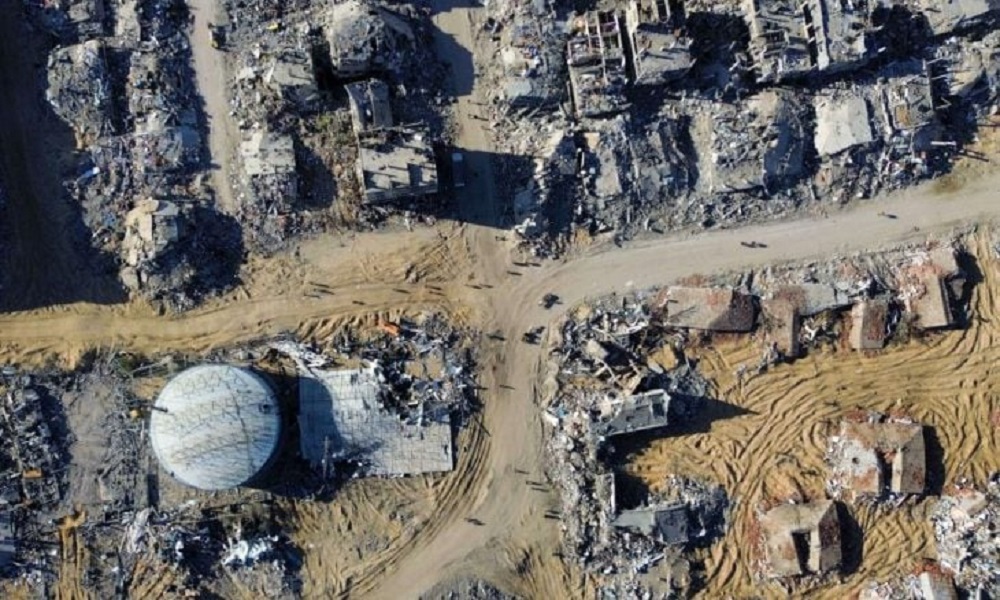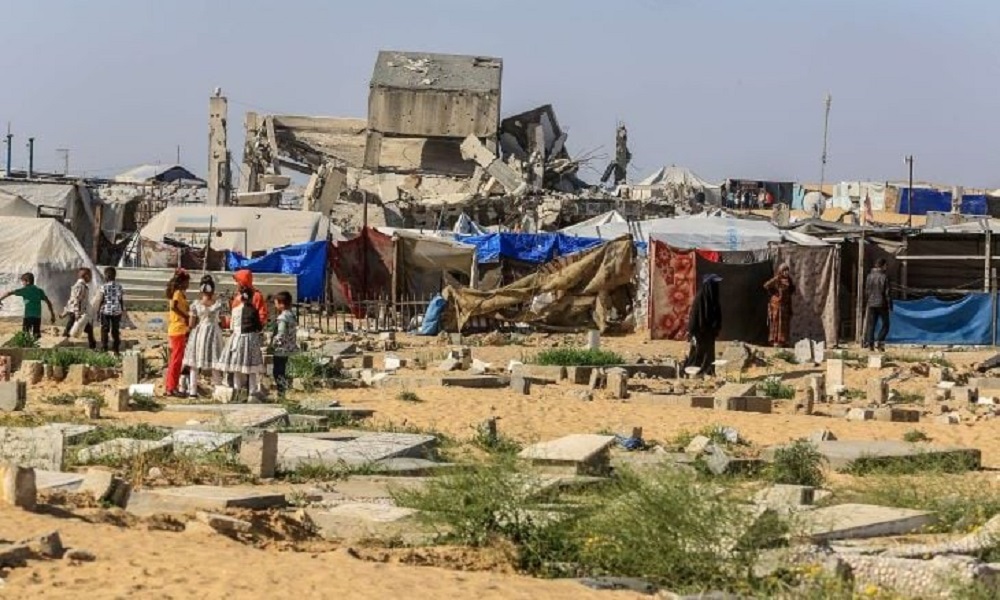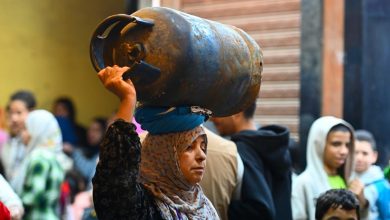Israeli Proposal to Eliminate 200-Shekel Notes Sparks Economic Concerns in Gaza
As Israel considers removing the 200-shekel note, Gaza’s residents and traders fear severe economic consequences amidst an already fragile financial situation.

Watan-The Israeli government’s decision to remove the 200-shekel banknote from circulation in the Gaza Strip has raised concerns among citizens and traders, due to the potentially serious consequences of this move if implemented, according to observers.
Israeli Foreign Minister Gideon Sa’ar initiated the call for this step, which was later supported by Prime Minister Benjamin Netanyahu, who described it as “excellent” and expressed his intent to discuss the matter with the Governor of the Central Bank, according to several Hebrew media reports on Friday.
Sa’ar claimed that the move would destroy the economic capabilities of Hamas, which holds significant quantities of this banknote.
Since Israel’s occupation of the West Bank and Gaza Strip in 1967, Palestinians have been required to use the Israeli shekel, and this practice has continued even after the establishment of the Palestinian Authority in 1994, due to the lack of a national currency.
There are several denominations of the shekel in circulation in the West Bank and Gaza, with the 200-shekel note being the highest denomination, followed by 100, 50, 20, 10, 5, 2, and 1 shekels (1 dollar equals 3.6 shekels).

Serious Consequences
Observers and officials believe that serious consequences would follow if the Israeli Central Bank approves this decision, especially since the Gaza Strip is already suffering from a significant shortage of circulating cash.
Since the beginning of the war, and with the closure of banks, many denominations of Israeli currency have deteriorated, leading to a severe liquidity crisis among citizens and traders.
Due to the closure of banks and the shortage of cash, residents have been unable to withdraw their money from banks, leading to the rise of a black market managed by brokers and traders. Those seeking to withdraw money from their accounts are forced to pay large commissions, sometimes as much as 30% of the amount they wish to withdraw.
Over the past few months, residents of Gaza have stopped using the 10-shekel coins due to their deterioration, and it appears they are now on the verge of abandoning the 20-shekel denomination for the same reason.
Economic Warfare
According to the head of the Gaza Chamber of Commerce and Industry, Aied Abu Ramadan, this move is part of Israel’s economic war against Gaza’s residents, aimed at “tightening all means of livelihood” for them in all areas.
Abu Ramadan told Al Jazeera that “we take this move very seriously, and it is part of the collective punishment against the people of Gaza.”
He added that the consequences of this decision—if implemented—would be very serious for Palestinian citizens, saying, “The situation is already very difficult and fragile, and this will make life harder for the citizens.”
Regarding its effect on the “completely destroyed” economic sector, he stated that it would exacerbate the enormous losses the sector has suffered during the war.
Abu Ramadan warned that this move would destroy the capital of traders and citizens, as it is primarily composed of this denomination of the shekel, due to its higher value.
“If this step is carried out, it will certainly erode traders’ capital, and their ability to recover will decrease,” he added, warning that it would deepen the liquidity crisis in the sector, which would further destabilize the already fragile situation.
Electronic Trading
Abu Ramadan called on the Palestinian Monetary Authority (acting as the Central Bank) to contact international institutions to pressure Israel not to carry out this move.
He also urged the Monetary Authority to reassure Gaza’s residents about the deteriorating and damaged banknotes and to encourage them to continue using them without fear, until an opportunity arises to replace them.
He further encouraged the residents of Gaza, especially traders and citizens, to shift toward electronic trading, as it “frees us from dependency on the occupation and protects currencies from damage and loss.”

A Blow to All Residents
Economist Ahmed Abu Qamar believes that implementing this step would negatively impact all residents of Gaza, both citizens and traders.
Abu Qamar rejected Israel’s claims that the 200-shekel banknote is primarily held by Hamas, stressing that it is widely circulated among all sectors of the population and traders.
He believes that Israel’s goal with this step—if implemented—is to “deliver a blow to all Palestinians in Gaza, not just Hamas, but ordinary individuals and traders as well.”
He continued, “The value of the 200-shekel notes represents about 70% of the total Israeli currency circulating in Gaza, which is natural, as it is the highest denomination, so the consequences of this move will be severe.”
He added, “People’s money and savings are in these notes, and eliminating them would lead to the loss of their funds in bulk, resulting in huge losses for the population.”
He agreed with Abu Ramadan that eliminating this denomination would worsen the liquidity crisis and called for a shift toward using “electronic trading.”

“Our Capital”
Food trader Ahmed Hassan stated that he possesses 50,000 shekels, all in 200-shekel banknotes.
He told Al Jazeera, “All traders, money exchangers, and brokers deal exclusively in 200-shekel notes, refusing to accept other denominations because it is the highest value and also because it is one of the few notes that has not yet deteriorated.”
Hassan expressed his deep concern over Israel’s plan to eliminate this denomination, considering it “a death sentence for everyone.”
He said, “Eliminating it will lead to the collapse of trade and the currency market because everyone currently deals only with this denomination… everyone will go bankrupt.”
He added, “Their goal is to destroy the economy, which is already destroyed, especially since there is no liquidity, and the money has deteriorated.”
Fear and Anticipation
The Israeli move has sparked widespread concern among Gaza’s residents, particularly with the ongoing siege, rising prices, severe shortages of goods, and a lack of liquidity.
Gaza resident Mohammed Al-Ghazali told Al Jazeera, “People don’t deal with the 10-shekel notes, and most also reject the 20-shekel notes because they’re damaged. If they cancel the 200-shekel note, what will be left?”
He added, “The situation is dire, markets are collapsing, poverty is worsening, prices are increasing, and the crossings are closed. If they take this step, it will be the destruction of everyone.”
Ghazali continued, “They want to destroy what remains of the collapsed economy. Soon, people will die of hunger because even if they find food in the market, they won’t have the money to buy it… there will be a complete collapse and suffering.”
For his part, resident Ibrahim Abu Leila said that he and his family only withdraw money from the bank (via the black market) using 200-shekel notes, as it is the only denomination traders and brokers deal with.
He told Al Jazeera, “I fear that they will implement this step; it will cause a total collapse because of the lack of liquidity. Everything depends on these notes, and all traders and capital owners refuse to deal with anything else.”
He concluded, “Everything will collapse, it’s a huge disaster. Who will compensate the people for their losses? We pray to God that this does not happen.”






